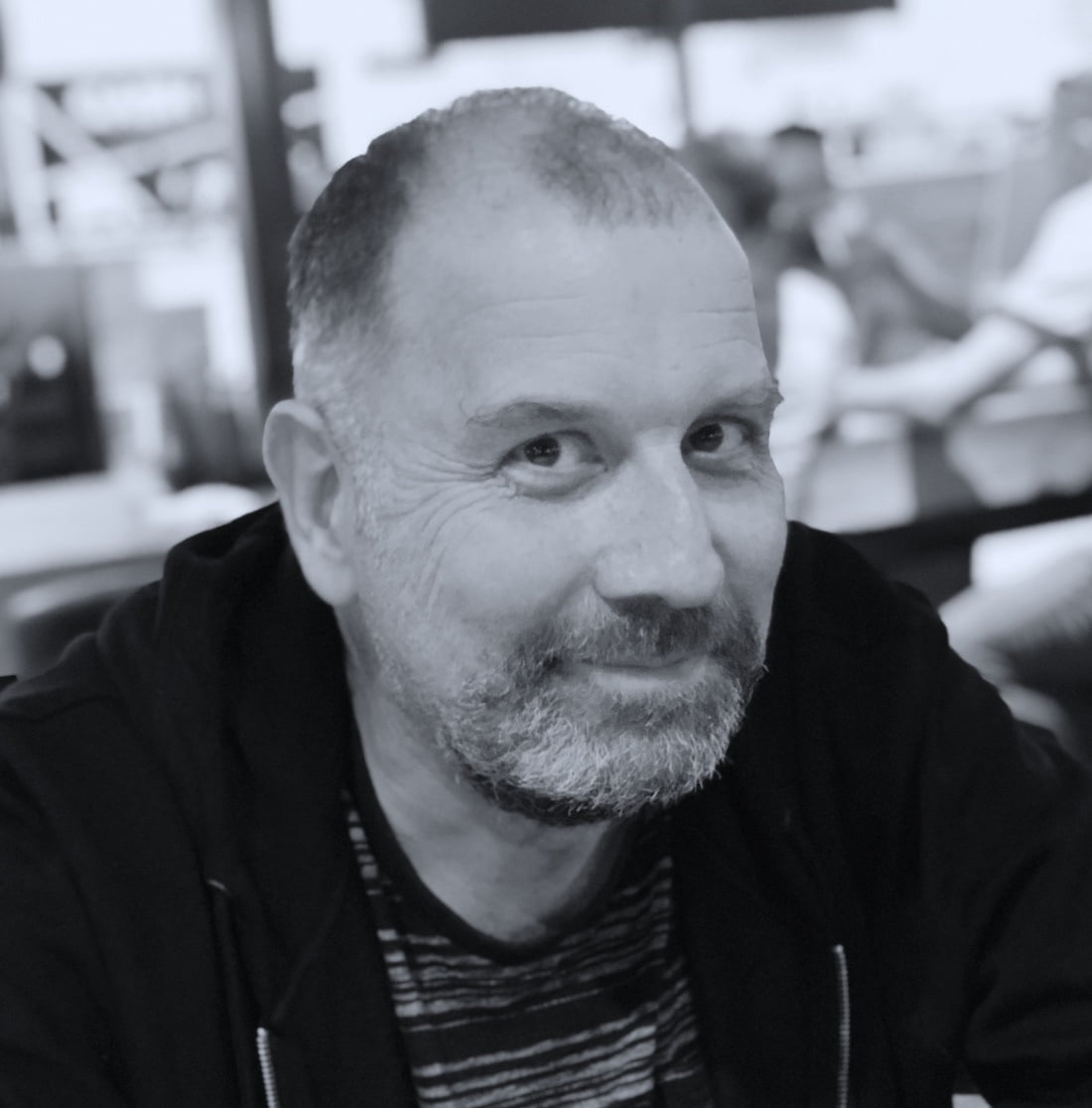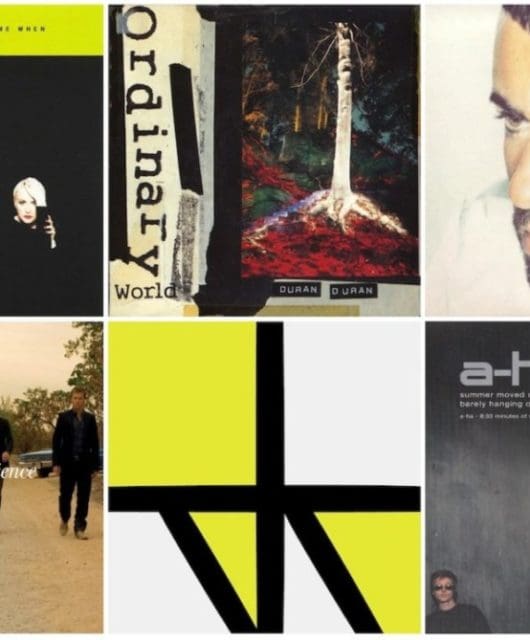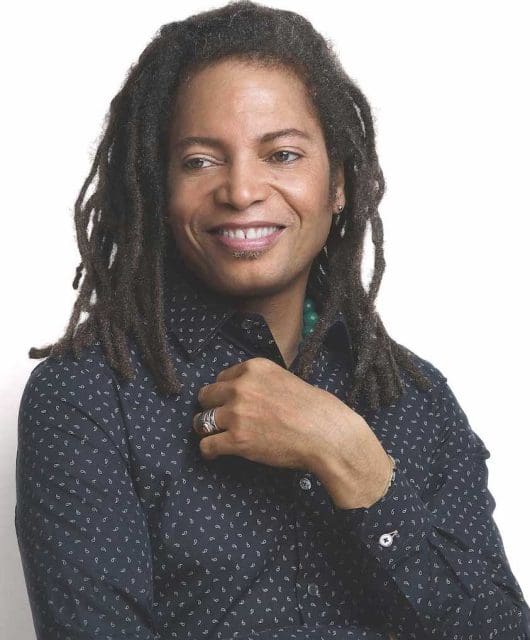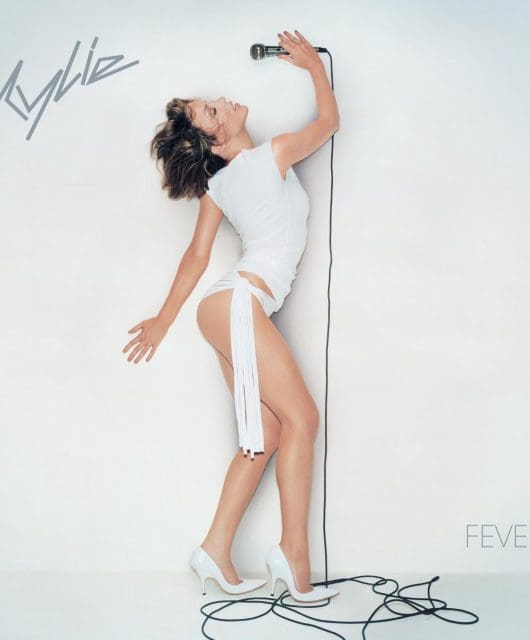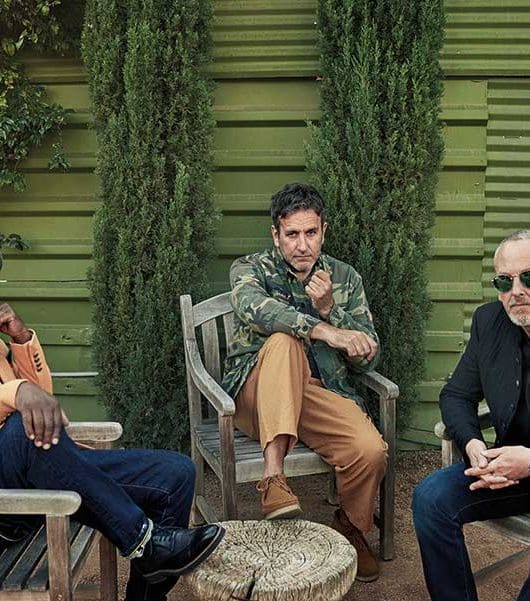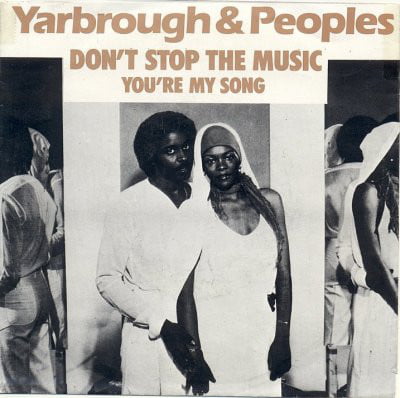Daniel Miller talks Depeche Mode: “If I had gone to the chip shop with Fad Gadget I wouldn’t have seen them”
By Andy Jones | September 19, 2023
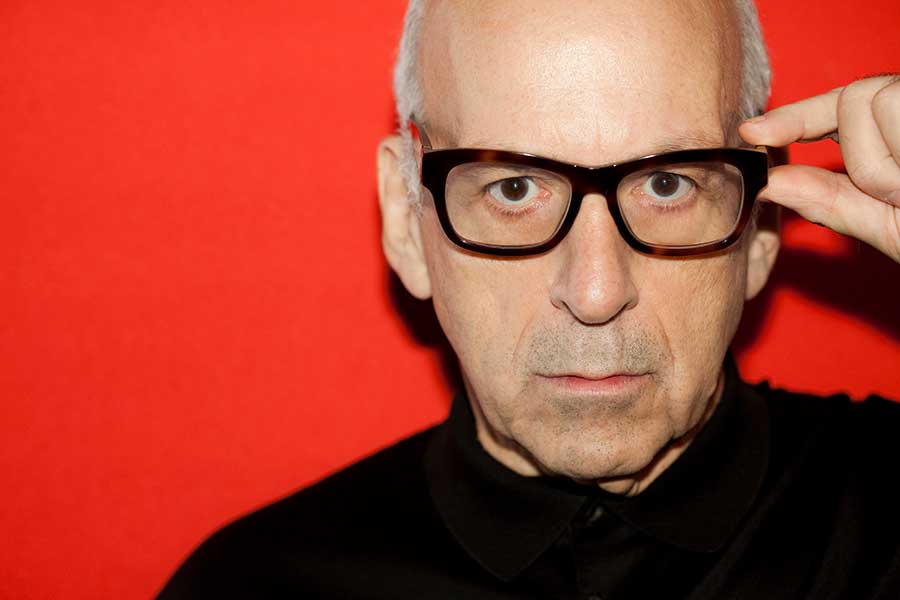
The Mute Records founder, Depeche Mode finder, father figure, unofficial member, collaborator, producer and synth donator Daniel Miller looks back at over four incredible decades. It’s been amazing, it’s been crazy, and there have been so many moments to celebrate, he says. But thank God Daniel Miller didn’t get a bag of chips on that fateful night…
After more than four decades, it must be hard for anyone in the Depeche Mode family not to look back at the ride (so far) and wonder at its twists and turns, and, ultimately, its stratospheric-like rise.
Daniel Miller has been there for pretty much all of it, bar the formation of the band in that youth club in Basildon. A few months later, he would witness them play live in a pub, and 40+ years later he would still be talking about it.
He struggles to name his favourite moments from those decades – but, in the interests of keeping you here, we promise he will – and politely stifles his irritation at being asked some questions that he has obviously been asked so many times before.
Yet Miller now also seems to be more at ease with his current role and place in the Depeche Mode story than ever before. He is, by his own admission, less involved on an album-by-album basis than he was, even a couple of records back.
And certainly less in the thick of it than when he oversaw the recording and production of the band’s first five albums.
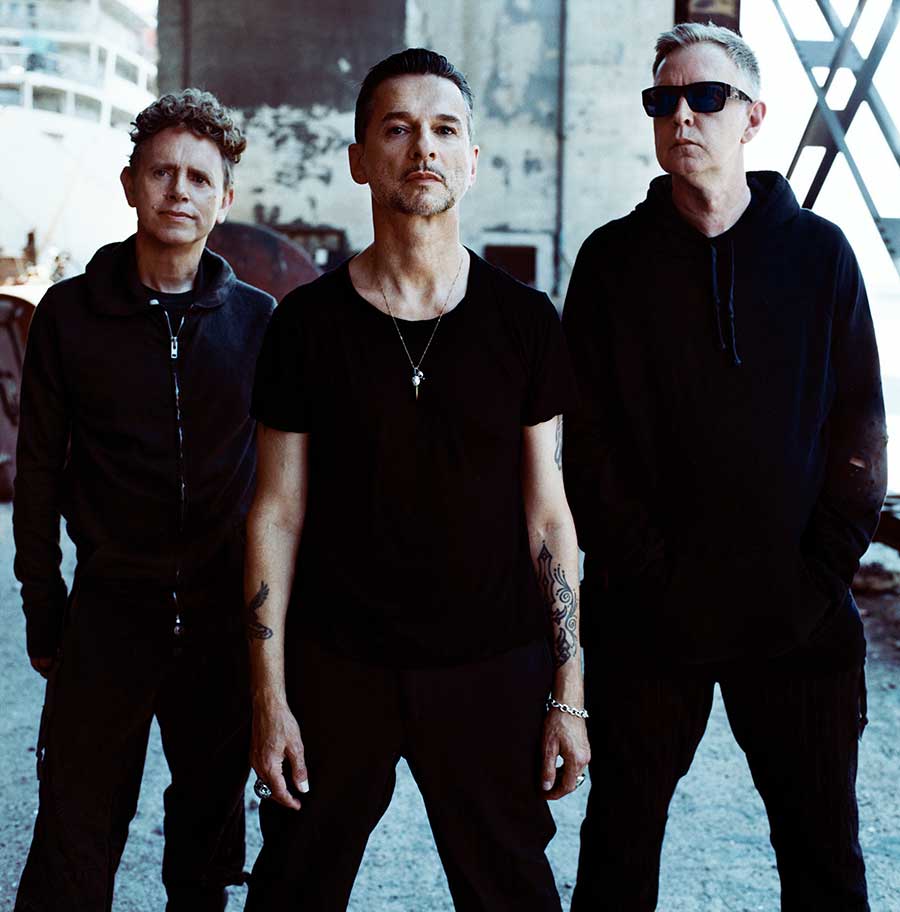 After 1986’s Black Celebration, Miller and the band decided that getting other producers in to do the job – from Dave Bascombe on Music For The Masses to James Ford on Memento Mori – would be beneficial to all concerned, so Miller has had time to focus on other artists on the Mute roster, his own music and the odd synthesizer or two.
After 1986’s Black Celebration, Miller and the band decided that getting other producers in to do the job – from Dave Bascombe on Music For The Masses to James Ford on Memento Mori – would be beneficial to all concerned, so Miller has had time to focus on other artists on the Mute roster, his own music and the odd synthesizer or two.
And stepping back has not only given him this time, but also, you feel, an appreciation of what Depeche Mode have become – what everyone involved along the way has become.
It’s given him immense pride, obviously (“lots and lots of moments – it was just crazy”), and even some unexpected grit-in-the-eye moments – “when they played some of the older tracks on the last tour I felt very emotional”.
After 40 years, there’s a lot of perspective, then, and some fantastic ‘sliding doors’ moments. The ‘what ifs’, the chance opportunities and the moments that made a band and a four-decade-long relationship.
- Read more: Top 40 Depeche Mode songs
What if, for example, Miller hadn’t turned up to that fateful gig at The Bridge House pub in London, after which his story with the band began?
“They often say to me that they wouldn’t have continued in that way,” Miller says on this possible multiverse version of Depeche Mode sans Daniel Miller. “I mean the songs would have been great, and all the elements would have still been there. They got a lot of offers from majors soon after we started working together, which they turned down.
“It was amazing because they were offered quite a lot of money, but were very loyal and felt most comfortable working with Mute. In those days majors had a lot more [say] and I think they might have pushed them into directions: ‘Why don’t you just do another Just Can’t Get Enough?’ or ‘Just do another People Are People’.
“People Are People was a real breakthrough record for them, especially in America. With the next single, Master And Servant, I remember I invited the plugger Neil Ferris and a guy who was doing sales promotion, Stuart Coxhead, to have a listen, and they were a bit horrified – I don’t quite know why.
“Maybe it was about Master And Servant not being the most poppy follow up to People Are People, although to us it was! If that had been a major label they might have said, ‘No, you’ve got to go back and get someone like Trevor Horn to remix it’ or whatever. So it’s impossible to say.
“The talent would still have been there, there’s no question about that. It’s more about if somebody else had pushed them into a direction. I tried not to push them into a direction so it was very natural.”
Production input
Daniel might have let the band fly by themselves, but he is modestly understating his own involvement: from the generous profit share record deal, to his production talents, from international promotion to lending them the odd synth or two, Daniel has been there every step of the way, and still has a hand in new material, albeit from a distance.
He reveals the current status is really a natural progression in his relationship with the band, and all stemmed from that necessary distancing between him and them – in the studio anyway – after Black Celebration.
“I think it was mutual. They wanted a different pilot and it wasn’t the best experience towards the end of Black Celebration. It was kind of frustrating for everyone.
“I wanted to focus on the label so it was just at the right time. It was me and the band and Gareth Jones for three albums: Construction Time Again, Some Great Reward and Black Celebration [Miller oversaw Speak & Spell and A Broken Frame with the band too].
“I really enjoyed working with them. I think towards the end, especially with Black Celebration, it became quite… I think we all needed a break… from me [grins]! So I miss them in a way but I’m also glad to be at arm’s length.
“We had good fun, it was nice, we had a really creative time and it was really enjoyable, but there were long periods where I was kind of missing in action with Depeche in the studio – for months, you know?
“I remember those days fondly but also towards the end we were getting too much into a routine of working together and it was definitely time for a change.”
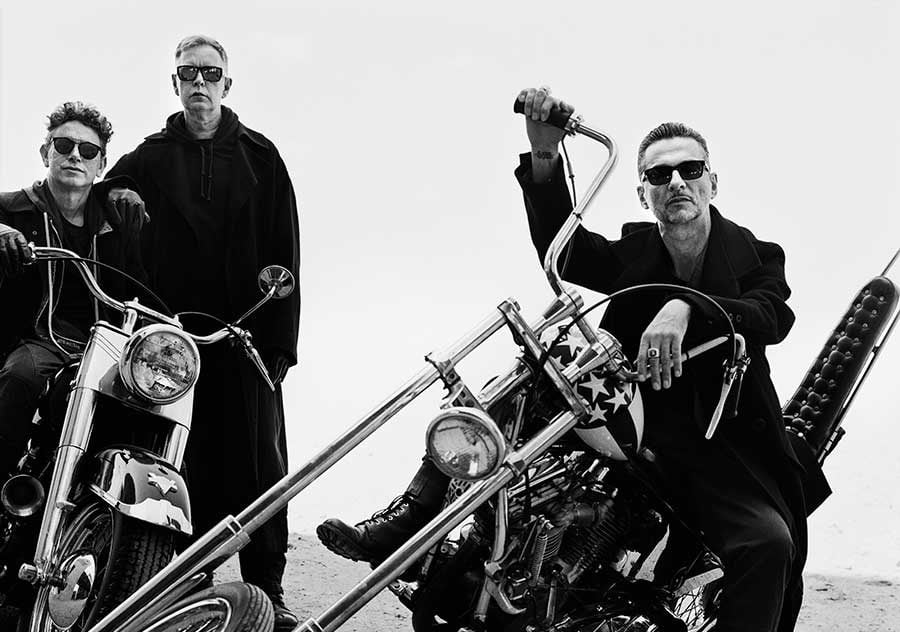 Since the Dave Bascombe-produced Music For The Masses, there has been a succession of talent behind the mixing desk.
Since the Dave Bascombe-produced Music For The Masses, there has been a succession of talent behind the mixing desk.
Flood oversaw the band at their peak with Violator and SOFAD while Tim Simenon (Ultra), Mark Bell (Exciter), Ben Hillier (the trio of Playing The Angel, Sounds Of The Universe and Delta Machine) took us and the band through perhaps choppier waters.
At the helm for Spirit and Memento Mori has been James Ford, with the Simian Mobile Disco-er providing a platform for Martin’s politics on Spirit and potentially more morbid leanings on Memento Mori. They might be producing, but Daniel still likes to chip in when needed.
A fine memento
“I get the demos,” he says. “It was a very quick process this time [with Memento Mori]. I went in with James Ford towards the end of the recording session just to have a listen and maybe make some suggestions and then in the mixing process as well, although these days you don’t necessarily go to the studio [for that], just critiquing mixes and things.
“So I’m not heavily involved and I didn’t spend a lot of time with them. And they did it in a very different way this time so I wasn’t as heavily involved on a day-to-day basis. In fact I haven’t been for the last couple of albums.”
Being at a further distance from Memento Mori than perhaps Miller is used to did give him a fresh perspective as it was coming together and he is incredibly pleased with the results.
“I think it’s incredibly strong, right from the demos I heard ages ago, and they’ve turned it into a really great album. And I said to them, ‘This is the best album you’ve done in the last six years’ but they haven’t made an album in the last six years! That does seem crazy but it’s true.
“We had COVID in between and they did a long tour, but it’s usually around four years [between albums]. I think it’s a really strong album and in terms of accessibility I think a lot of the Depeche fans will be really happy with the direction, and they are great songs and great productions.
“That’s aways the case, but these songs are a little more direct, shall we say. The lyrics are also super interesting and not obvious. And musically it is more direct, quite stripped back and more upbeat than the last couple of albums.”
This might perhaps be something to do with the extra writing credits on the record that come by way of Richard Butler from The Psychedelic Furs – how did these collaborations come about?
“I think they’ve known each other on and off,” Daniel explains, “and that Richard is on the west coast [of the US] somewhere and they were just in touch. I don’t really know exactly how it started.
“Maybe Richard said something like, ‘I’ve got this song, do you fancy working on it?’ and that transformed into them writing together more and then some of those tracks ending up on the album.”
God, death and religion
One of the themes of the new album is death, or more positively, to embrace life while you can. It is, of course, not the first time that Martin Gore has wrestled with the biggest themes.
Sex, drugs, death and religion in particular have made constant and consistent appearances – Blasphemous Rumours from the Miller-produced fourth album Some Great Reward being a stand-out early example that straddles at least two of these.
And as Miller states, Gore was not alone with his fascination with religion, in particular – it was an early influence on the entire band.
“I think there are a few things I can say. Fletch, Martin, and I think Vince to a certain extent, in the early days were members of various kind of religious organisations like The Boys’ Brigade.
“I don’t think they came from particularly religious families, so I don’t quite know how they got into it. But religion at some point in their childhood or early teens had quite a big influence on them.
“And Martin, who wrote most of those songs, has got a very enquiring mind about lots of different subjects and religion – as a subject rather than a following – is something that he finds really interesting.”
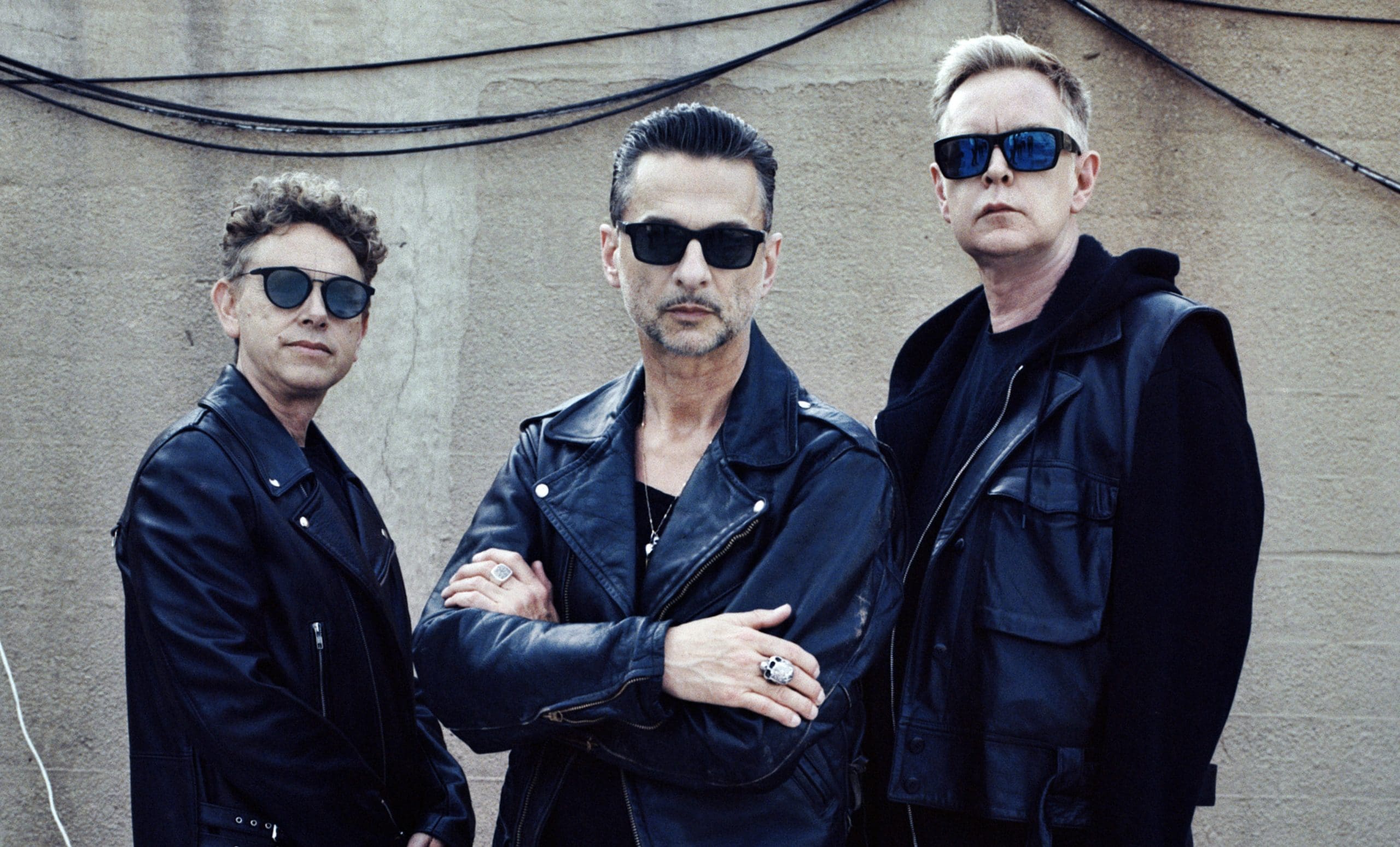
But turning to the ‘Remember You Must Die’ title of the latest album, and Miller is insistent that it had nothing to do with the passing of Mode founder member Andy Fletcher.
“All the songs were written before he died,” he states. “A lot of the themes on the album, if they hadn’t been written before he passed away, you could say they were a result of that, but they weren’t, they were all written beforehand.”
Miller also reveals he was in little doubt that Martin and Dave would carry on flying the Depeche banner after Fletch’s passing.
“I don’t know how much they really thought about it, but I think it was very natural just to carry on,” he says. “I hate the cliché but Fletch would have hated the idea that his passing had somehow ended the band.
“He was so excited about the new album – he passed away just before they started recording – and was really looking forward to it and the touring.
“And it wasn’t like it happened in the middle of a long break, it happened at the end of a break and the momentum was already there; the recording sessions had been booked, the tour had been booked. I think they really wanted to [carry on] as the songs were strong and they were geared up for it, you know?”
And talking of Fletch, there has been much talk of his role in the band, with many suggesting that an under-recognised role that Fletch took in Depeche was guiding their musical direction, something that Miller, at least in part, agrees with.
“Yeah I mean he was very much… Martin is quite reticent and he doesn’t like conflict and for a lot of the more difficult things, Fletch was Martin’s voice in the band and also pushed Martin a lot in terms of songwriting and things like that.
“He [Fletch] didn’t have that much of a direct influence by playing, especially in the later years, but his presence was a really important part of it. As somebody said, he was the biggest Depeche Mode fan.
“In a way he was very much part of the soul of the band. A lot of people thought he didn’t do anything but that wasn’t true at all. And there was never any thought about him leaving the band or the other two going, ‘What does Fletch do?’.
“Now he’s not there I think Martin and Dave have become closer, partly because of that, just kind of bonding, but I think also musically – I think Dave and Martin wrote quite a lot of the songs [on Memento Mori] together.
“Of course he [Andy] will be missed, and when I was in the studio towards the end of the recording, you really felt his presence there. He had a few catchphrases and things that came up in the studio in a nice way.
“So he was very much a presence in the studio, even from wherever he is, you know?”
Daniel has just touched on it, but one ray of light that has come from Andy Fletcher’s passing is that Martin and Dave – effectively a Depeche duo – are indeed getting on a lot better…
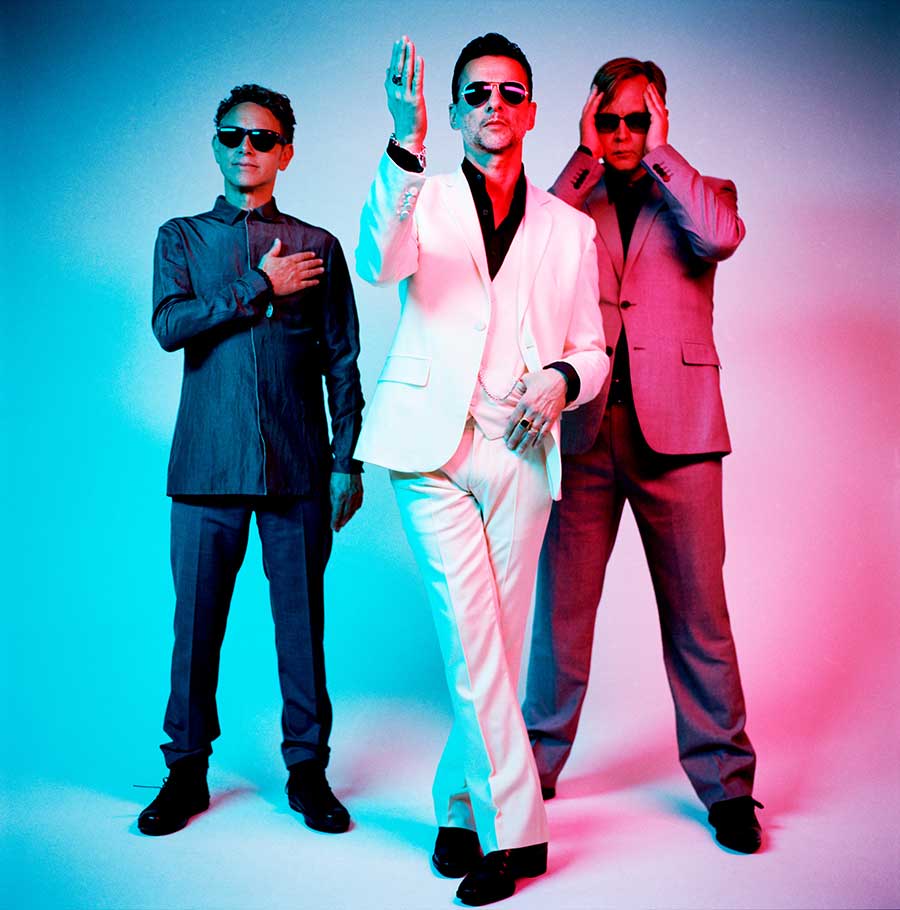 “I think you have to understand that Dave lives in New York, Martin is on the West Coast, Fletch was in London and Fletch and Martin were friends but hardy spoke to or saw Dave at all between projects.
“I think you have to understand that Dave lives in New York, Martin is on the West Coast, Fletch was in London and Fletch and Martin were friends but hardy spoke to or saw Dave at all between projects.
“I think after Andy passed away that now it’s a kind of solidarity between them – ‘It’s just us, we’d better start getting on.’ They didn’t get on badly, they just led very different lives out of season, so to speak. And it’s brought those two together which is really good.”
The Depeche Mode fan
We’re getting to that point in the interview where we’re going to ask Miller to look back and ponder, but before we do, we’ve often wondered about his stance on whether he is a fan of the band or a collaborator, or whether it’s possible to sit somewhere in between.
“I try not to be too much of a fan, especially with the records that I worked on more directly. I didn’t listen to them for a long time. You just can’t listen to them really.
“At a certain point you just don’t hear the music anymore; you just remember how we got that sound or that argument.
“Of course I am a fan and I love the band but you can’t really be an outsider fan and work with the band. You have to be much more critical and help them make the best record that they can and the way they want it to be. So it’s a mixture. I’ve never had that question before.
“But now I’m less involved I can be more of a fan! I don’t have to make difficult decisions or persuade them to do an interview they don’t want to do and the more mundane things.
“I can be much more at arm’s length now so I can be more of a fan. And actually when I go to the gigs, especially on the last tour when they played some of the older [tracks] I felt very emotional.
“I was overwhelmed in a way that I hadn’t been probably [expecting]. Before I was more kind of like, ‘the bass is a bit quiet’ or ‘turn up the vocals’ or ‘that drum sound is not quite right’ but that disappeared and it was very emotional actually.”
So we arrive at the ‘best of’ moment, or moments, as there are clearly many peaks in the time that Miller has worked with the band. But we might as well start at the beginning.
“Well, definitely seeing them for the first time at The Bridge House and meeting them,” Daniel smiles as he then recalls another fabulous ‘what if’ moment. “If I had gone to the chip shop with Fad Gadget – with Frank [Tovey] and his band – I wouldn’t have seen them. And that’s not normally something I turn down to be honest: fish’n’chips!
“So there’s all those kind of ‘sliding doors’ moments at the beginning. And then just seeing how they developed. During that period, maybe ‘81/’82 when they went from playing at The Bridge House to maybe 20 people, most of whom were their mates, to playing Hammersmith Odeon.
“You could just see the fanbase [explode]; it was like, ‘Wow this is just crazy!’ Obviously the Bowl [Pasadena Rose Bowl] in California was just massive, not just because it was big – 80,000 people – but it was only a year or two before that when people were saying to them, ‘Well you’ll only ever be a club band in America.’
“But the tour before that they were booked to play in L.A., a medium-sized venue of 2,000. They sold that out in a day which no-one expected. And then they did their first of what they call ‘sheds’ in America – like an arena-sized gig – and that sold out in a day. Crazy.
“Even the record company in America were shocked. They had a lot of support. K-Rock was the biggest alternative station there in L.A. and they were constantly playing Depeche so they sold out on the west coast.
“But also hearing the new songs was also very exciting and hearing the finished records. A lot of moments really. Lots and lots of moments.”
- Want more from Classic Pop magazine? Get a free digital issue when you sign up to our newsletter!
- Mute Records’ Daniel Miller talks Vince Clarke
